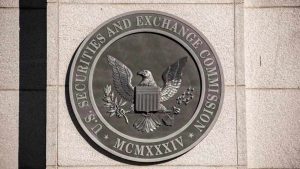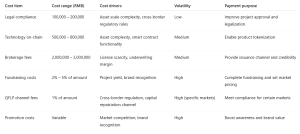Bitcoin mining metric that has predicted every big BTC rally since 2020 is flashing again

A Bitcoin (BTC) mining indicator that has preceded several major BTC price rallies is flashing again.
Blockchain analytics platform Glassnode spotted a golden cross between the 30-day and 60-day moving averages of Bitcoin’s hash ribbon. In theory, such a crossover indicates that the price momentum is switching from negative to positive.
Hash ribbons are based on Bitcoin’s network hash rate behavior and are designed to tell investors when the price is due to experience upside. In simple terms, they show when Bitcoin becomes more expensive to mine relative to the base cost of mining.
Miners earn less in U.S. dollar terms during Bitcoin price corrections. So, to pay for their operational costs, they sell their newly minted Bitcoin to raise capital. They also tend to shut down machines to reduce their operational costs, leading to hash rate declines in the Bitcoin network.
But hash rates recover later on thanks to Bitcoin’s automatic difficulty readjustments. That reduces the cost of mining and makes it cheaper for less-efficient miners to enter the fray. In doing so, miners also accumulate coins, thereby ending the capitulation period.
Therefore, hash ribbons demonstrate miners’ sentimental switch from capitulation to accumulation. That provides traders a method to determine potential price bottoms in the spot market.
Hash ribbon fractals predict Bitcoin bull runs
Recent history has shown that Bitcoin’s price has followed the hash ribbon signals.
For example, the chart below illustrates multiple instances in which a crossover between the 30-day (green) and the 60-day (blue) hash ribbon moving average has prompted Bitcoin bulls to pursue upside moves.
For instance, the so-called supply squeeze event in December 2020 coincided with the green-blue moving average crossover. The closing bid for Bitcoin that month was $28,990, which surged to $62,971 on April 14.

Similarly, the bear capitulation of 2019, the January 2020 mini-bear cycle, March 2020’s coronavirus-induced crash and May’s halving event happened alongside the green-blue moving average crossover. Each was followed by an upside move in the Bitcoin market.
The recent bullish crossover appeared as a part of what Glassnode called the “Great Migration Recovery.” In detail, China’s crackdown on the crypto sector in May forced regional miners to discontinue operations. Some decided to shut down completely under Beijing’s regulatory watch, while others moved their mining operations abroad.
Related: Bitcoin mining difficulty jumps a second time as miners settle offshore
The period of China’s mining community exodus saw Bitcoin’s hash rate plunge from 180.66 million terrahashes per second (TH/s) on May 11 to 84.79 million TH/s by July — a more than 53% drop.
But as of Aug. 17, the hash rate had recovered to 119.12 million TH/s, as miners moved their operations to Canada, Kazakhstan, Russia and the United States.
“Historically, the 30D hash-ribbon crosses above 60D when the worst of the mining impact is over, and recovery is underway,” noted Glassnode.
Bitcoin was trading near $45,200 at the time of writing, up 55% from its July 20 low of $29,301.
The views and opinions expressed here are solely those of the author and do not necessarily reflect the views of Cointelegraph. Every investment and trading move involves risk, and you should conduct your own research when making a decision.













